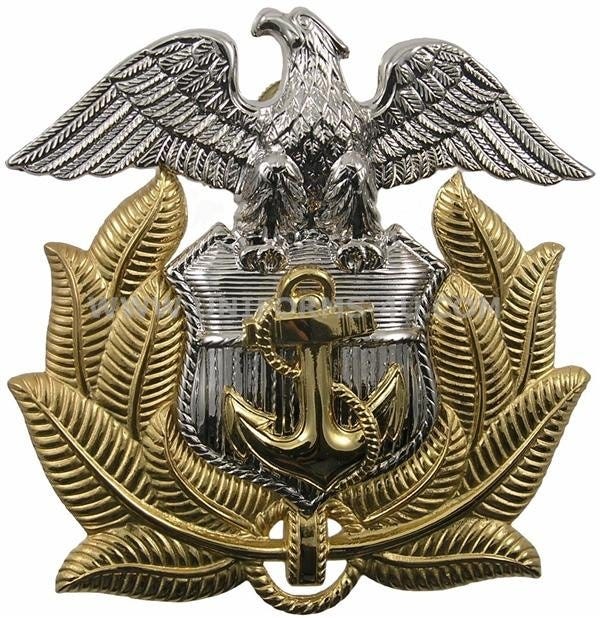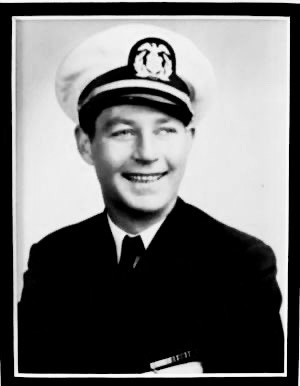The Forgotten Service? Remembering the Merchant Marine
Honor unto Whom Honor is Due on Memorial Day and Everyday

They came from all over this great Land of ours. Some officers were distinguished leaders from the nation’s finest universities. Before World War II, many officers had graduated from maritime officer academies, such as my father’s alma mater in New London, Connecticut. This academy was later amalgamated into the U.S. Coast Guard Academy and the U.S. Merchant Marine Academy. The men were able seamen, having sailed the seven seas and faced the most frightening experiences of the raw elements unleashed on the vast oceanic prairies. Yet nothing could prepare these intrepid patriots for what lay ahead.
The United States Merchant Marine (those in the former U.S. Maritime Service, the current Merchant Service of the Department of Transportation, and the Naval Reserve officers) stands as a proud member of our uniformed services and, in times of war, under the orders of the President, as members of the Armed Forces. Trained to serve in wartime when needed, these officers and crew navigate the high seas to promote our nation’s commerce around the world. During crises, the Merchant Marine acts as a Naval or Coast Guard asset. Merchant Marine officers are activated into the U.S. Coast Guard or U.S. Navy, bravely providing human and mechanical resources to defend our continent and assist our Allies. No service sacrificed more in blood and lives than the Merchant Marine during WWII. As the son of an officer—officially a Coast Guard officer—my father’s photo was always displayed as I grew up (he died when I was five). I felt proud of his service and have always aimed to help others remember

As a pastor, I would ask our musicians to play the service hymns during the announcements before the Call to Worship. While preparing for my first Memorial Day service at First Presbyterian Church of Chattanooga, I asked our famed, and now late, pianist, Mr. Jim Wilson, if he would play a musical phrase from each service, starting with the Air Force, Army, and continuing through the Coast Guard, Marine Corps, and Navy. When I paused, I said, “Jim, I know that not too many people know the Merchant Marine service song, but I was wondering if...” Jim lifted his hand gently to pause me. “Oh, I know it, Mike. No problem.” As I led the memorial service, I named, “The United States, Air Force . . . The United States Army . . . The United States Marine Corps . . . The United States Merchant Marine—then, the inspiring notes of “Heave Ho! Me Lads!” resonated through the sanctuary.
As Jim modulated on the grand piano from the famous Marine Corps Hymn to the first notes of the Merchant Marine anthem, I didn’t expect anyone to stand. Just as I looked at Jim to smile, a cue to move on to the Navy’s “Anchors Away,” one elderly gentleman stood. Then, a woman stood. I did a double-take. Not many Merchant Marine Veterans of her era remain, and women in the Maritime Service were rare. I will never forget that moment in my ministry. Two Merchant Mariners from World War II. One unforgettable sight.
I will also never forget the sacrifice of all those courageous, everyday heroes who gave their lives for God and country in each of our storied branches of the Armed Forces. I served in the Navy as a top-secret linguist and as a Chaplain in the Army. I have over thirty-two years of uniformed service to Old Glory and will have completed fifty years of formal association in 2026. Therefore, I am proud of the Navy and the Army. But I have to tell you: I love the US Merchant Marine. I salute the World War II Merchant Mariners who sacrificed so much to secure our freedoms. And I add to their number, the Merchant Mariners who served with distinction in every major conflict since. They are the heroes’ heroes.
Let me share some things you may not have known about this excellent service that continues to serve our nation so well.
"The United States Merchant Marine provided the greatest sealift in history between the production army at home and the fighting forces scattered around the globe in World War II. The prewar total of 55,000 experienced mariners was increased to over 215,000 through U.S. Maritime Service training programs.
Merchant ships faced danger from submarines, mines, armed raiders and destroyers, aircraft, "kamikaze," and the elements. About 8,300 mariners were killed at sea, 12,000 wounded of whom at least 1,100 died from their wounds, and 663 men and women were taken prisoner. (Total killed estimated 9,300.) Some were blown to death, some incinerated, some drowned, some froze, and some starved. Sixty-six died in prison camps or aboard Japanese ships while being transported to other camps. Thirty-one ships vanished without a trace to a watery grave.
One in 26 mariners serving aboard merchant ships in World War II died in the line of duty, suffering a greater percentage of war-related deaths than all other U.S. services. Casualties were kept secret during the War to keep information about their success from the enemy and to attract and keep mariners at sea.
American mariners took part in the invasion of Normandy on June 6, 1944. In the two years before the invasion, enormous quantities of war materiel were ferried across the U-Boat infested Atlantic to Britain by merchant ships. About 2,700 merchant ships were involved in the first wave of the invasion on D-Day, landing troops and munitions under enemy fire." —The United States Merchant Marine in World War Two
"[Merchant Mariners] have written one of its most brilliant chapters. They have delivered the goods when and where needed in every theater of operations and across every ocean in the biggest, the most difficult and dangerous job ever undertaken. As time goes on, there will be greater public understanding of our merchant fleet's record during this war [World War II]."—President Franklin D. Roosevelt
Thank you, Mr. President. We are beginning to understand. In 1988, merchant mariners were given “Veteran” status through an act of Congress.
“In 2020, Congress passed the Merchant Mariners of World War II Congressional Gold Medal Act to recognize the merchant mariners for their courage and contributions during the war. “
The “forgotten service” must be forgotten no more.
O Lord, whose promises to our spiritual fathers and mothers who claimed this country for Thee have been remembered in the secret councils of Thy heavenly realm throughout our generations, we give Thee thanks on this Memorial Day. We give thanks for divine blessings in peace and providential protection in war. We thank Thee especially for Airmen, Soldiers, Guardsmen, Marines, Merchant Mariners, and Sailors who died defending these sacred promises. We pause to remember their sacrifice and the pain endured by their families on our behalf. We still our minds to reflect, to meditate, to repent, to seek Thee anew, and to ask for the fresh rain of spiritual revival to wash away the moral corrosion that has built up through our own neglect of Thee and Thy Word.
We would show honor unto whom honor is due, remembering that duty, sacrifice, and love unto death are reminders of Thy Son, our Savior, Jesus Christ, who lives and reigns with Thee and the Holy Spirit, One God, now and forever more. Amen

Resources:
Armed Forces Medley performed by the US Merchant Marine Academy Band. The final song, “Heave Ho, My Lads! Heave Ho!” is the official Merchant Marine anthem.
Music to the Merchant Marine Anthem: Heave Ho, My Lads! Heave Ho!
There is a fine tribute by the National Veterans Memorial to the U.S. Merchant Marine, featuring a rousing new Celtic song about the Merchant Marines during World War II. This is a moving and well-produced piece by a Canadian Celtic band (“Celtae”). The song and video production honor the US Merchant Marine and the British Merchant Navy with British Commonwealth merchant mariners (Australia, Canada, and New Zealand). The video is embedded in this article.




Thank you for this. It is interesting, informative and exactly what I needed to send to a lady who just sent me a message wanting to know why Merchant Mariners of WWII should be called 'Veterans'. Needless to say, I have sent her a link to this along with a link to usmm.org.
My father, William Thomas O'Neal, was Third Engineer on the MV Lake Osweya when it was torpedoed and sunk in the North Atlantic in February 1942. The Lake Osweya was one of the "lost ships" and her fate was the all-consuming mystery of my sister's and my own childhood. She was one and I was three so we didn't have actual memories of him, but our mother saved all of his letters, mementos and photos and kept in close contact with his family so that we always felt as much a part of his famiily as we did her's. She died never knowing what really happened.
Just a few months after her passing, one of my sons was visiting and as we were talking he was idly messing with my computer. He asked me what the name of my father's ship was and to please spell it out for him. I did and in just a minute or two, he stopped talking and just stared at the computer. Imagine our utter surprise when uboat.net came up and there it was!! The Lake Osweya and even the names of the men who went down with her - including my father. I cannot describe the feeling that came over me, the emotions that came tumbling out, but I cried and laughed and cried some more. Tears of sadness and tears of relief at finally knowing and the pride, always there but now it was even stronger as I tried to imagine what it must have been like for all of them. Of course I couldn't imagine that horror but in the moment I tried. We still don't know, of course, if he went down with the ship or if he was one of the few who apparently made it to a lifeboat, only to perish in the harsh February weather of the North Atlantic.
This transpired about 12, 15 years ago but for some reason, your wonderful piece brought it all back as if it were only yesterday. Again, "Thank You."
Patricia O'Neal
Greenville, North Carolina
Figure 1 should read Kings Point, not Kingsport.